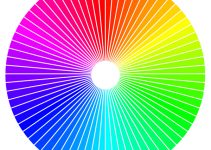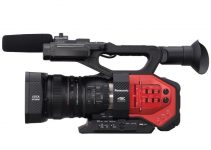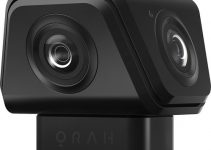Among the issues with picking up a mirrorless or mirrorless-style camera for video is that they lack the space for some of the hardware that is common on traditional cinema cameras – like internal ND filters.
Now, most of us solved this issue with other types of NDs, usually placed in front of the lens. That doesn’t mean that the dream of not having to worry about swapping filters when you swap lenses doesn’t remain.
For shooters with Canon RF-mount cameras there may be a solution. Josh Sattin shows off a Meike adapter for EF-mount lenses that features an integrated variable ND filter. That might make life easier.
The Basics
Already mentioned but worth going over again is the basic functionality of this device. It’s a lens adapter for using Canon EF glass on Canon RF-mount cameras.
This does mean it is not an option if you were planning on using native RF lenses.
Inside this adapter is a drop-in filter holder and it comes with a variable ND filter. When installed you can use a dial on the outside of the adapter to adjust the ND strength.
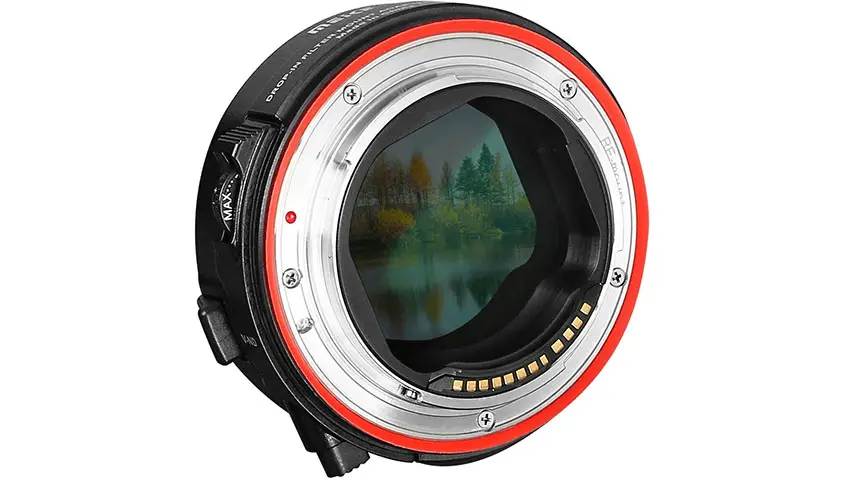
Image Credit: Meike
If you are planning on using EF lenses and tire of swapping out threaded ND filters then this is perfect.
Meike claims that the included filter has a very wide 1.5 to 9-stop range.
As for price, it is on the affordable end at $160. Compare that to the official Canon offering that runs $400.
Image Quality
While the adapter itself isn’t going to impact image quality, the glass of the filter will. There are a few things to watch out for:
- Color shift
- Vignetting/X patterns
Using an EOS R5 with the EF 16-35mm f/2.8 III he performed a few tests. The wide-angle should strain all aspects of the filter.
He compared it to the NiSi True Color Variable ND Filter tested to be one of the best in regards to color shift.
Looking at the samples you can tell that Meike has a warmer tone. It’s not terrible and does appear to be easily correctable in post or with a custom white balance.
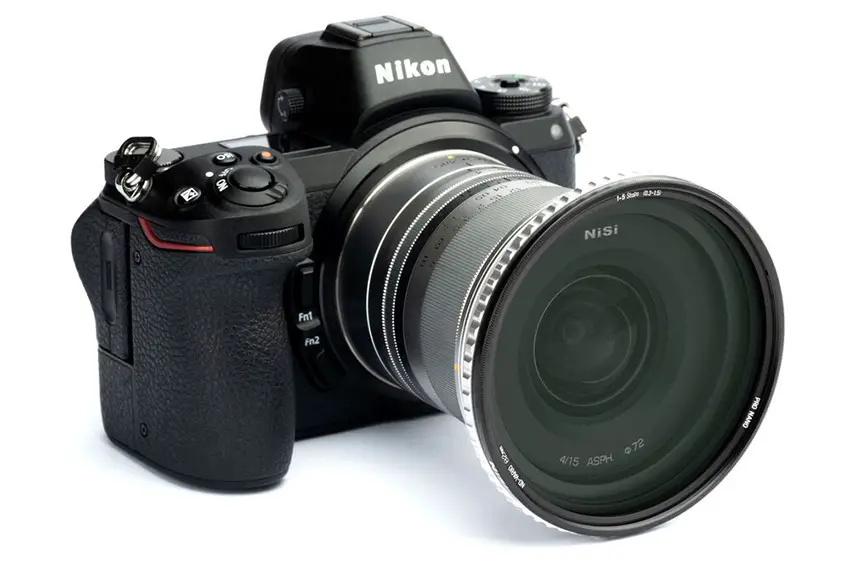
Image Credit: NiSi
Neutral Density Range
Going from 1.5 to 9 stops is a massive range for a single ND filter. Most stick between 3-5 stops total to avoid the worst issues with color shifts.
Doing a test it looked like that range was accurate. And if it was inaccurate then it would be that it actually has a little extra density at the darkest end.
Autofocus Performance
Generally, you won’t get top-tier autofocus performance with an adapter. Part of that is that EF lenses are a little older and not quite able to perform at the speed of the latest R-series cameras.
In this case it doesn’t seem like AF is impacted negatively by any serious amount. Newer lenses will obviously perform better though and as with every 3rd-party adapter, there is potential for some weirdness.
Clear Filter
The adapter actually comes with a clear filter in addition to the ND filter. It doesn’t appear to have an impact on image quality.
Why would you use this? A couple of reasons actually. It keeps the opening on the side of the adapter filled in to prevent dust and light leakage and it keeps the sensor covered when swapping lenses.
Build Quality
Build is similar to the Canon adapter and it is made from durable plastic. There is a weather sealing strip on the rear mount.
The variable ND filter dial is tiny though and can make precise adjustments difficult.
After all of this testing Josh easily recommends the Meike adapter if you are looking for
[source: Josh Sattin]
Order Links:
- Meike Drop-In Filter Mount Adapter EF-EOS R with Variable ND Filter (B&H, Amazon)
- Canon EOS R5 Mirrorless Camera (B&H, Amazon)
- Canon EF 16-35mm f/2.8L III USM Lens (B&H, Amazon)
- NiSi True Color ND-VARIO Pro Nano Variable ND Filter (B&H, Amazon)
- Canon Drop-In Filter Mount Adapter EF-EOS R with ND Filter (B&H, Amazon)
Disclaimer: As an Amazon Associate partner and participant in B&H and Adorama Affiliate programmes, we earn a small comission from each purchase made through the affiliate links listed above at no additional cost to you.


